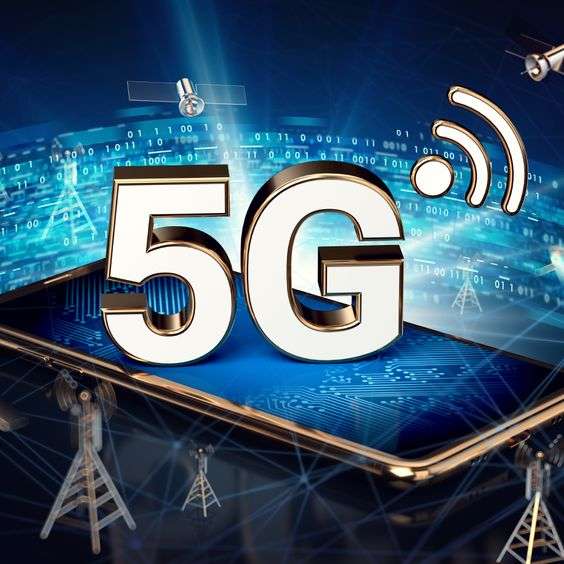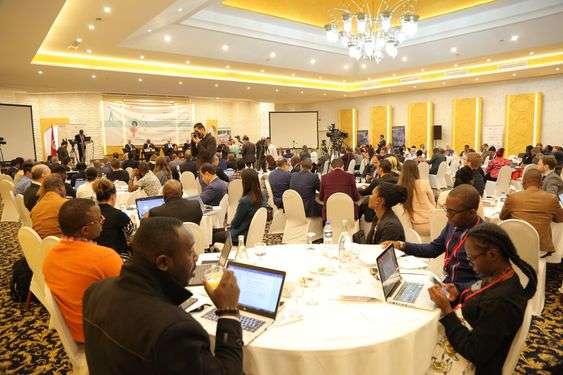
5G will fundamentally alter how businesses are conducted throughout Africa as it becomes more and more commonplace. While most people are aware of how 5G will affect the mobile internet speeds of the average person, it will also open up new possibilities and facilitate innovation in a wide range of businesses.
That was the overriding message from day two of the Digital Council Africa conference, which focused on the release of 5G to business and how it will impact Africa.
Although 5G coverage is still in its early stages throughout the continent, companies will be in a far better position to benefit from it right away.
According to Dr. Mohamed Madkour, vice-president of Huawei Global Wireless Networks Marketing and Solutions, “5G is lighting up the future of societies and economies.” “Even though the topic may appear technical, there are higher stakes and a bigger goal. In actuality, 5G will be crucial in ensuring that people live happier and safer lives, that businesses run more smoothly, and that the world will be greener in the future.
He continues, “When we discuss 5G, we should put less emphasis on speed and killer apps and more emphasis on the use cases.”
Nevertheless, he makes the point that 5G’s fast speed and low latency imply that it has the power to completely change a wide range of sectors, including media, mining, ports, utilities, manufacturing, and law enforcement.
“There are applications where 5G can be transformative, from top to bottom.”
Marius Engelbrecht, a senior strategy consultant at Huawei, notes that 5G would be advantageous for South Africa’s mines, which have vast subterranean tube systems. It is also helpful for Internet of Things (IoT) sensors because of its low latency speeds, which can contribute to a safer overall environment.
He continues by saying that the steel industry can benefit from 5G. “What’s really fascinating is that a game controller device at Guangxi Iron and Steel in China allows individuals to control a crane remotely. This not only demonstrates the apparent advantages of safety and efficiency, but also how 5G is fusing several technologies in novel and creative ways.
But policy regulation and infrastructure are essential for those benefits to materialise. These are both essential to guaranteeing that everyone benefits from the deployment of 5G.
Dr. Charley Lewis, a councillor at the Independent Communications Authority of South Africa (ICASA), cites the country’s digital divide as an example.
Impacts of 5G Networks

Encouraging Telecommuting
By showing us that we may work from anywhere, Covid-19 altered the course of history. With 5G, people can finally start living where they want to because they can access high-speed wireless internet there. Although the full effects of 5G on the workplace and quality of life are still unknown, a significant shift in culture may result.
Improved edge computing capabilities brought about by 5G complement the current cloud infrastructure. By utilising sub-10ms latencies, this enables businesses that are transactional (like fintech, trading applications, and mobile banking) or that demand live engagement (like online gaming, live sports, and robotic surgery) to offer new user experiences that were previously unattainable.
Encouraging Ecological and Effective Agriculture
Agriculture is just one of the hundreds of industries that 5G is already transforming and making more efficient. The adoption of 5G technology in the agriculture sector has resulted in an exponential rise in data capture. Growers may now obtain priceless information from the field in almost real time, which will help them boost productivity and sustainability and eventually enhance their profits.
Enabling Immersive Brand Experiences
In a world where retailers are seeking innovative ways to engage consumers. 5G has enabled immersive interactive brand experiences, powering high-res video, 3D, 360-degree and augmented reality experiences. Further, as advertisers shift away from user-level targeting, the high level of user engagement enabled by 5G-enabled creative content will be essential.
Boosting Application Performance

Significant improvements in application predictability are currently offered by 5G. For customers utilising commercial applications, this means greater dependability and reduced data loss. Cellular networks are able to transmit more and better quality material as their capacity increases. Developers couldn’t work at the edge and consistently provide this capacity to end users without 5G’s predictability progress.
There is no doubt then that any businesses hoping to maximise the benefits of 5G shouldn’t just see it as something that they’ll eventually have to adapt to. Instead, they should actively seek to understand the role 5G could play in their operations as well as in the day-to-day lives of their employees and customers. And, from there, they should look to incorporate it as thoroughly as possible.
Collaborations across stakeholders will be necessary to scale 5G across Africa. These collaborations should include cost-effective network deployment, consumer and enterprise partnerships to deliver relevant localised use cases, and the creation of programmes that lower the cost of 5G devices for the general public.
$11 billion boost for Africa’s economy
Projecting the general impacts the technology would have on Sub-Saharan Africa’s economy over the next seven years, GSMA said:
”5G is expected to benefit the Sub-Saharan Africa economy by $11 billion in 2030, accounting for more than 6% of the overall economic impact of mobile. Much of the 5G benefit will materialize over the period to 2030, as some countries are in the early stages of deployment and 5G economic benefits will increase as the technology starts to achieve scale and widespread adoption. ”
Nigeria, South Africa to propel 5G growth
GSMA stated that Nigeria and South Africa would be the main drivers of Sub-Saharan Africa’s 226 million 5G connections by 2030, which translates to an adoption rate of 17%.




